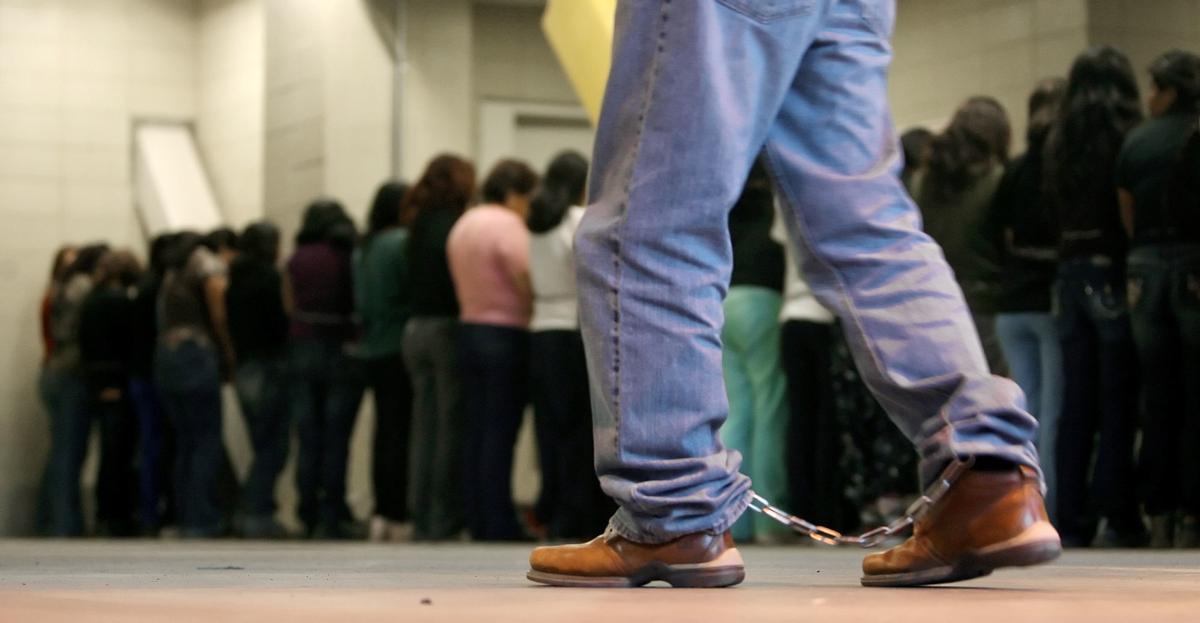The partial shutdown at Tucson’s federal court began to lift in recent weeks, but key functions remain canceled.
The pandemic led Chief U.S. District Judge G. Murray Snow to shut down jury trials in March, as well as the grand jury that hands up indictments and a fast-track prosecution program for illegal-border-crossing cases in Tucson.
The pandemic remains a national public health emergency, Snow wrote in a May 28 order, but “the current guidance of public health officials allows for a modification in court operations to permit the resumption of limited in-court proceedings.”
Snow ordered the partial lifting of the moratorium on hearings and jury trials starting June 1, although they must be conducted according to federal health guidelines.
Anyone who attends hearings or trials must wear a mask and observe social-distancing rules, Snow wrote.
A maximum of 10 people can sit in the public areas of the courtroom and they must sit in areas marked with an “X.”
No one with symptoms such as a fever or cough is allowed to enter the courthouse.
Protesters laid in the road for 8 minutes and 46 seconds in symbolic protest of the death of George Floyd.
All court activities not related to cases remain canceled, including naturalization ceremonies and educational events, Snow ordered.
Customer service counters at the clerk’s office will remain closed to the public until June 12, Snow ordered.
In late March and early April, court filings plummeted as drug smuggling and illegal border crossings slowed. Federal agencies also delayed some prosecutions and Customs and Border Protection started quickly expelling migrants at the border instead of sending them to court.
Operation Streamline, the fast-track prosecution program that handles about 1,400 cases each month, remains suspended until further notice, Snow wrote. The last day Streamline proceedings were held was March 13.
The court has adopted a number of practices since March to keep the court functioning as much as possible.
Court personnel will continue to hold routine hearings via telephone or videoconferencing with defendants who are in custody at facilities run by CoreCivic, Snow wrote, referencing a private prison company that holds many defendants who appear in federal court in Tucson.
Grand jury proceedings in Tucson will not resume until June 17 and could be postponed again “depending on public health developments,” Snow wrote.
With border-crossing cases, prosecutors have started working around the lack of grand jury indictments by filing a document known as an information when the defendant faces a short prison sentence, court records show.
Many of those cases are resolved with a plea deal and a sentence of time served, which was not uncommon prior to the pandemic, court records show.
The U.S. Attorney’s Office declined to comment on how prosecutors are handling border-crossing cases.
Drug-smuggling prosecutions are much less frequent than before the pandemic, court records show. Some of those prosecutions are being deferred to a later date, particularly when the defendant is a U.S. citizen with ties to Arizona. CBP officials periodically announce drug busts on social media.
Photos: Sunshine Mile (Broadway) in Tucson
Sunshine Mile in Tucson
Updated
Hirsh’s Shoes was built in 1954 and is one of 29 buildings in the district designed by architect Bernard Friedman’s firm.
Sunshine Mile in Tucson
Updated
Hirsh's Shoes, 1954, on the Sunshine Mile (Broadway Road) in Tucson.
Sunshine Mile in Tucson
Updated
Hirsh’s Shoes at 2934 E. Broadway, in Tucson, circa late 1950s (courtesy Hirsh’s Shoes) and in 2016 (Mike Christy / Arizona Daily Star).
Sunshine Mile in Tucson
Updated
The distinctive Chase Bank at Broadway and Country Club was once a Valley National Bank. It was designed by Don Smith of Friedman and Jobusch Architects in 1971.
Sunshine Mile in Tucson
Updated
Construction workers build the Valley National Bank on the northwest corner of East Broadway Boulevard and North Country Club, on March 18, 1971.
Sunshine Mile in Tucson
Updated
Valley National Bank, 1973, on the Sunshine Mile (Broadway Road) in Tucson.
Sunshine Mile in Tucson
Updated
The Welcome Diner, built in 1964 as Sambo’s Pancake House, is on the western end of Tucson’s historic Sunshine Mile.
Sunshine Mile in Tucson
Updated
Solot Plaza on the Sunshine Mile (Broadway Road) in Tucson.
Sunshine Mile in Tucson
Updated
Kelly Building, built in 1964-65, on the Sunshine Mile (Broadway Road) in Tucson. Architect: Nicholas Sakellar
Sunshine Mile in Tucson
Updated
View from Country Club Road on the Sunshine Mile (Broadway Road) in Tucson.
Sunshine Mile in Tucson
Updated
Store in the Solot Plaza, built in 1958, on the Sunshine Mile (Broadway Road) in Tucson. Architect: Nicholas Sakellar
Sunshine Mile in Tucson
Updated
Friedman and Jobusch Office, built in 1950, on the Sunshine Mile (Broadway Road) in Tucson. Architects: Friedman and Jobusch
Sunshine Mile in Tucson
Updated
Old Pueblo Medical Group, built in 1965, on the Sunshine Mile (Broadway Road) in Tucson. Architect: Cain, Nelson and Ware
Sunshine Mile in Tucson
Updated
American Evangelical Lutheran Church, built in 1954, on the Sunshine Mile (Broadway Road) in Tucson. Architects: Jaastad and Knipe
Sunshine Mile in Tucson
Updated
Arizona Auto Refrigeration, built in 1951, on the Sunshine Mile (Broadway Road) in Tucson.
Sunshine Mile in Tucson
Updated
Old Tucson Jewish Community Center, built in 1953, on the Sunshine Mile (Broadway Road) in Tucson. Architect: Bernard Friedman
Sunshine Mile in Tucson
Updated
Anne Rysdale was Arizona’s only female registered architect when she developed and built the Haas Building in 1957.
Sunshine Mile in Tucson
Updated
A public workshop will be held May 18 from 9 a.m. to noon at First Assembly of God church, 1749 E. Broadway, to gather public reaction to a report on transforming the Broadway corridor into a public space as the city widens a portion of the street to six lanes.
Sunshine Mile in Tucson
Updated
The Chase Bank at 3033 E. Broadway Blvd. is one of several architectural distinctive buildings along the Sunshine Mile.




